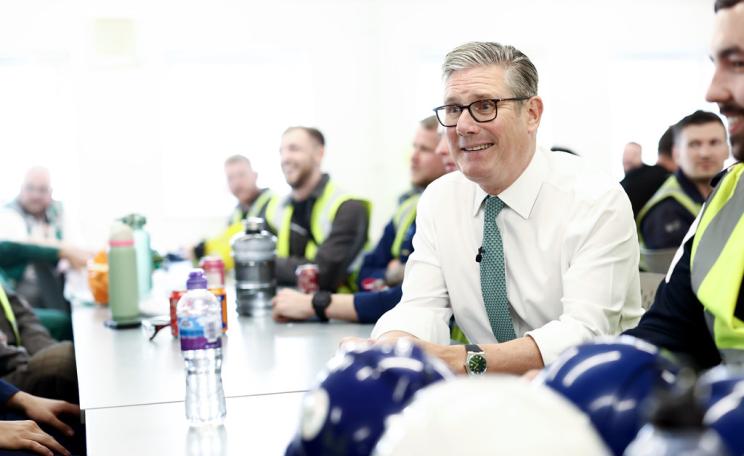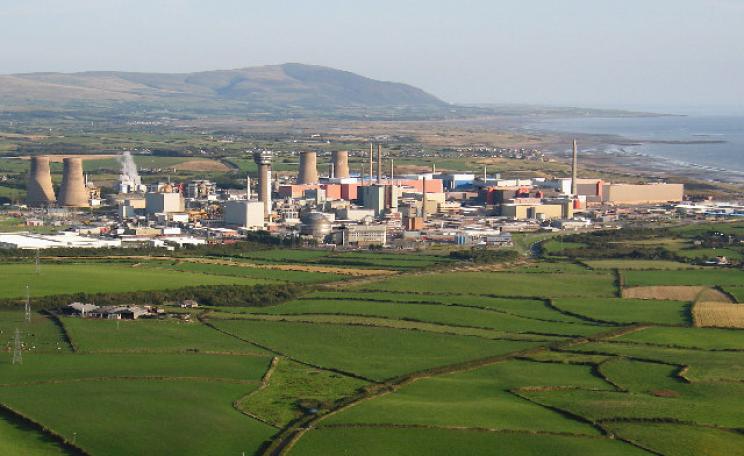Every dollar invested in nuclear power makes the climate crisis worse by diverting investment from renewable energy technology.
First Nation organisations, environment and climate groups, medical and public health groups, faith groups and trade unions have endorsed the following statement rejecting the nuclear industry's claims that it is a clean, green solution to climate change.
The statement has been signed by more than 300 organisations around the world and is published here as the United Nations COP26 climate conference approaches.
Unsafe
The latest Intergovernmental Panel on Climate Change (IPCC) report highlights the growing climate crisis and the energy challenges we face.
We need an urgent global shift to clean and renewable energy and national governments need to actively facilitate and manage the transition from reliance on fossil fuels and nuclear to renewable energy.
This global transition to clean, safe, nature-friendly renewable energy is already underway and is generating employment and opportunity.
Growing this based on principles of environmental and social justice, equity, diversity, resilience and the rights and interests of communities and our environment will provide skilled and sustainable jobs, economic activity and reliable electricity access around the world.
Every dollar invested in nuclear power makes the climate crisis worse by diverting investment from renewable energy technology. Nuclear is increasingly unsafe and unreliable in a warming world with more frequent shutdowns and an inability to operate safely under changed climate conditions.
Risks
From nuclear weapons tests to radioactive waste facilities the nuclear industry has a history of displacing, disrupting and damaging the health and rights of workers and communities.
Indigenous Peoples, Black, and Peoples of Color, face a disproportionate burden and risk from the nuclear industry as mining and waste storage primarily affects their lands and they are often not consulted, compensated or respected.
Nuclear is slow, expensive and dangerous. It is not carbon neutral and poses unique security and waste management risks. We do not have the time to wait for the industry to recover from its own economic failures, overcome construction delays or to fulfil the false promise of new technology.
The legacy of contaminated mining zones, nuclear weapons fallout and the unresolved issue of nuclear waste demonstrate the profound risks of nuclear power.
Future
These risks are amplified by the changing climate and are in fundamental conflict with the foundation principles of sustainability and intergenerational equity.
Renewables give us the ability to make a just transition for energy sector workers, their families and communities and to provide secure global access to sustainable low carbon electricity. Renewable energy is real, affordable, low risk and clean. Nuclear simply cannot meet our future energy needs.
Every dollar invested in nuclear power makes the climate crisis worse by diverting investment from renewable energy technology.
Globally, we have multiple energy saving and renewable energy options which, unlike nuclear, enjoy broad social license. Our organisations, representing a broad cross section of the global community, maintain that nuclear power is not a credible or effective climate response.
We support a renewable energy future and view nuclear power as a dangerous distraction from the real movement on the climate policies and actions that we urgently need.
Our organisations maintain that nuclear power is:
Dirty and dangerous
Nuclear reactors produce long-lived radioactive wastes that pose a direct human and environmental threat for many thousands of years. Radioactive waste management is costly, complex, contested and unresolved.
Nuclear power cannot be considered a clean source of energy given the intractable and inter-generational legacy of nuclear waste. All human-made systems fail. When nuclear power fails it can do so on a global scale.
The human, environmental and economic costs of accidents like Chernobyl and Fukushima are massive and continuing. Decommissioning and cleaning up old reactors and nuclear sites, even in the absence of any accidents, is technically challenging and extremely costly.
Unsustainable
Nuclear power relies on uranium mining. Like coal mining this causes adverse environmental impacts and puts workers and communities at risk. It is a thirsty industry that consumes large volumes of precious water, from uranium mining and processing through to reactor cooling.
Nuclear power plants are vulnerable to threats that are being exacerbated by climate impacts, including dwindling and warming water sources, sea-level rise, drought, jelly-fish swarms and increasing storm severity.
Unjust
The nuclear industry disproportionately impacts both Indigenous communities and those with lower socio-economic status around the world. Uranium mining, the legacy of weapons testing and nuclear waste dumping impacts and threatens some of the world’s most vulnerable communities.
Radiation exposure also poses a greater risk to some of the most vulnerable in our community including children, pregnant women and people with underlying health issues.
Slow
Nuclear power is a slow response to a pressing problem. Nuclear reactors are slow to build and license, and even slower to become net electricity contributors. Globally, reactors routinely take a decade or longer to construct and time over-runs are common.
Expensive
Nuclear power is now one of the most capital intensive and expensive ways to produce electricity and costs continue to rise. Cost estimates of reactors under construction in Europe and the US keep growing and many are billions of dollars over-budget and years behind schedule.
A security risk
Nuclear power plants have been described as pre-deployed terrorist targets and pose a major security threat. This would likely see an increase in policing and security operations and a commensurate impact on civil liberties and public access to information.
Dual-use nuclear infrastructure and funding, human resource and wider links between the military and civilian nuclear sectors raises weapons proliferation and security concerns, particularly in nuclear weapons states.
Aging or unproven
Existing nuclear reactors are highly centralised and inflexible. They lack the capacity to respond to changes in demand and usage, are slow to deploy and are poorly suited to modern energy grids and markets.
Many existing reactors are old and due for decommissioning and any move to extend their life would raise serious safety concerns. Small Modular Nuclear Reactors (SMRs) and other ‘new generation’ nuclear projects are not in commercial production or use and remain unproven and uncertain.
Neither the failed current reactors nor the non-existent promised reactors are a credible basis for a national energy system.
Carbon polluting
There is no such thing as zero or close-to-zero emission nuclear power. Emissions from nuclear are lower than fossil fuels but much higher than renewable when life cycle and opportunity cost emissions are considered.
Almost every stage of the nuclear chain requires additional non-nuclear energy inputs. As uranium ore grades decline the sectors carbon footprint will increase, the transport of materials and the ongoing management of nuclear waste are also energy intensive.
Our shared energy future is renewable, not radioactive.
This Author
Dr Jim Green is the national nuclear campaigner with Friends of the Earth Australia and one of the organisers of the above global NGO statement on nuclear power and climate change released ahead of COP26. For more information visit: https://dont-nuke-the-climate.org.







